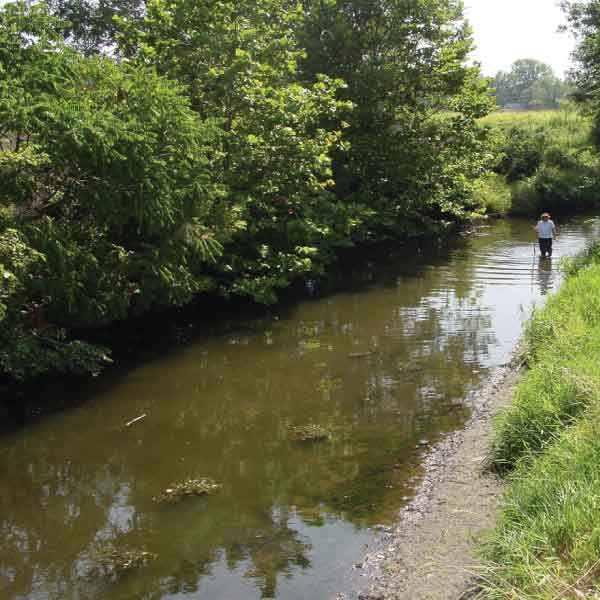Remedial Investigation (RI) activities were performed periodically in 2005 and 2006 to delineate the nature and extent of previously observed impacts to sediment and surface water in a stream reach downstream of the Warsaw Wastewater Treatment Plant (WWTP), as well as sediment in the adjacent wetland. Compilation of data on contaminant exposure pathways; human and biotic community receptors; and site‑specific and regional data such as geology, hydrogeology, ecology, demographics, threatened and endangered species, sensitive areas, and critical habitat was also conducted. The development of a sediment transport model was used to evaluate suspended and bed load transport of fine and coarse‑grained materials and to better define the stream’s resuspension and deposition processes. Specific site characterization activities included:
- Confirmation of spatial distribution, depth, and contaminant of concern concentrations in soft sediment;
- Delineation of the vertical and horizontal extent of potential impacts in wetland sediment that exceeded a screening guideline value, utilizing a probability-based grid sampling approach;
- Characterization of water quality in the stream and other potentially impacted waterbodies; and
- Collection and analysis of study area-specific data related to exposure pathways for inclusion in the human health and ecological risk assessments.
The RI was completed under the State of Indiana’s Site Cleanup Program. The risk-based approach established in the Comprehensive Environmental Response, Compensation, and Liability Act (CERCLA) integrates water and sediment quality.

PROJECT HIGHLIGHTS
- State-led CERCLA Remedial Investigation
- Development of a sediment transport model
- Watershed-based Stream Condition Assessment
- Human Health and Ecological Risk Assessment
- State of Indiana’s State Cleanup Program
